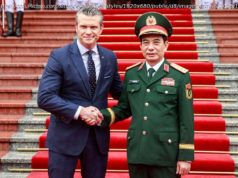Russian President Vladimir Putin has one big weakness in his master plan to dominate the world stage: an aging oil economy that lacks innovation and globally competitive sectors.
Russian President Vladimir Putin has an intelligence background that has helped him navigate the chessboard of geopolitics, but the former KGB officer also has a big weakness: the Russian economy is slow growing and innovation is sorely needed. Under Putin, the Russian government has not done enough to bring its economy into the 21st century, experts say, and it could be vulnerable if its global provocations result in more significant economic retribution.
Over the last few years, Russia’s financial situation has been stable, but unimpressive. Russia’s economy is on a path of modest growth, fueled by rising oil prices and low inflation, a set of factors that may not last. Russia ‘s economic output is suffering from a lack of sector diversification that puts it behind some of its largest rivals on the world stage. It is stuck in an Industrial Age-mindset that limits innovation crucial for growth, according to experts.
The lack of innovation and entrepreneurship among Russian companies should be top priorities for Russia if it wants to modernize its economy and achieve sustainable growth, said Harvard University economics professor Bruno Sergi.
Russian GDP in 2017 was about $1.58 trillion, growing at a 1.5 percent rate and GDP is expected to continue to grow by 1.7 percent to 1.8 percent this year. Oil and natural gas contribute almost 40 percent of national revenue, according to the Energy Information Association, and a majority of all exports, said Timothy Frye, chair of the Columbia University political science department. The U. S. oil industry’s contribution to U. S. GDP is growing more quickly than other industries due to hydraulic fracturing, but oil and gas have represented less than 10 percent of GDP in recent years.
Buoyed by stronger oil prices, Russia’s stock market has been one of the world’s best performers in the past year, returning near-20 percent, and it has avoided the steep slide in emerging markets in 2018, with a year-to-date return of roughly 3 percent. But the longer-term toll of oil dependence and geopolitical friction haven’t benefited investors who stick with the market long-term: over the past five-year period, Russian stocks are down by 3 percent.
Russia’s recent growth is cyclical, and will fall flat if there is no restructuring of the economic system, said Eurasia Group senior analyst Jason Bush. High oil prices aren’t enough for Russia’s economy to grow steadily; the price also has to be continually rising, Bush said. Oil prices were high in 2013, for example, but growth slowed, an indicator that long-term economic growth won’t result from reliance on oil.
Russia’s Achilles heel is its “low productivity, weak innovation, and lack of attractive sectors that could attract the investment required for expansion,” Bush said. While Russia performs well in industries such as IT, agriculture and Soviet-era industries like aircraft manufacture, all three sectors have limited long-term growth potential as a result of their inferiority in a “competitive market dominated by global giants,” Bush said.
The major benefit of its oil-led economy is the extent to which other countries depend on it. European countries, including Germany and Poland, absorb roughly two-thirds of Russia’s oil supply. Russia has significantly increased oil exports to China in recent years, surpassing Saudi Arabia as China’s largest supplier in 2016 for the first time. But that has also led to a major missed opportunity, because the Russia economy does not need to be commodity-dominated, said Jonathan Elkind, senior research scholar at Columbia University’s Center on Global Energy Policy.
“Russia has great traditional capabilities in its science and engineering communities. But in the absence of economic policies that enable more vigorous innovation and more competitive economic relations, Russia will remain unduly dependent on commodity exports,” Elkind said.
Russia needs to attract foreign direct investment (FDI) as part of building competitive industries that can enter global supply chains, but politics are holding back those efforts, and putting long-term growth in jeopardy.
“I think it is FDI that Russia needs most and where the damage is therefore greatest,” Bush said. “One could say that while short-term trends are often driven by other factors – such as oil prices, exchange rates, or what the central bank is doing – long-term growth depends heavily on politics because of the impact on long-term foreign investment.”
According to the Central Bank of Russia, the country attracted around $70 billion in FDI in 2013, but only $7 billion in 2015, the year after the Ukraine crisis. By 2017, FDI had recovered to $28 billion, but was still well below the levels seen before 2014, according to Bush.
The Trump-Putin summit in Helsinki has caused an ongoing political uproar, but Bush said talk from the two leaders about improving relations and reducing tensions are positive for investment, if the larger geopolitical issues can be resolved.
“Improving relations depends ultimately more on actions than on words,” Bush said. “The complex international problems that have led to a souring of relations, such as the wars in Syria and Ukraine, are still very far from resolutions, and it is still very difficult for Russia and the West to agree on the ways forward.”
Trump’s continuing back and forth over Russian interference in U. S. elections also could constrain any further improvement in the relationship between the two nations. On Tuesday, Trump said he accepts Russia’s interference, but he has made conflicting statements to the press and on Twitter throughout the week. Investors will remain cautious for now, Bush said.
Recent U. S. sanctions have exacted a psychological toll more than making an actual dent in the Russian economy. The 2014 U. S.-imposed sanctions restricted lending to and investing in some large Russian banks and oil companies. While the sanctions came as a shock to large Russian companies with significant loans payments, Russia has mostly bounced back, repaying most of the debt and reducing need to borrow abroad, Bush said.
Russia’s central bank provided “emergency dollars” to companies in need.
“Trying to harm Russia by restricting loans from abroad is not very effective in the long term,” Bush said.
But the sanctions did sink FDI into Russia, even though it was not specifically prohibited.
“Investors’ fear of further sanctions can be even more powerful than actual sanctions,” Bush said. “Long-term investors hate investing into countries without strong backing from their own governments, and the government of the country they are investing in.”
Frye said that, for now, the sanctions have served chiefly as a warning to Russia and other nations about maintaining international norms.
Home
United States
USA — mix Russia's Achilles heel: Putin still falling short on master plan for aging...






